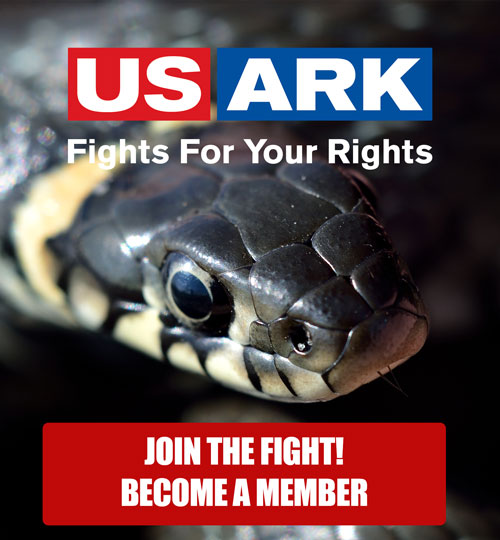Deadline to comment is October 26, 2015.
The United States, as a Party to the Convention on International Trade in Endangered Species of Wild Fauna and Flora (CITES), may propose amendments to the CITES Appendices for consideration at meetings of the Conference of the Parties. Conservation efforts are critical for species worldwide as human expansion, habitat loss and pollution continue to decimate populations. These listings also have an impact on the interstate trade, importation and exportation of these species. Established captive breeding populations, which do not contribute to extinction of species, should be recognized.
Conservation is crucial. New and updated CITES listings can impact the commercial trade and captive populations of these animals, too. USFWS should hear from those keeping and breeding these species so they are aware captive populations exist. While captive populations in other countries are rarely used for reintroduction purposes, there is potential for this to occur. Also, as habitat is destroyed due to human expansion, captive populations may be all that exist for some species in the near future. In addition, many species have not been collected from the wild for many years or already have sustainable quotas. Restricting trade on these species will greatly inhibit the gene pool of captive populations and cause sustainable breeding to die off, too.
We cannot emphasize enough the importance of being civil and professional at all times. At no time should crude language, partial sentences, bad grammar, etc. be included with comments. Never be afraid to submit comments, but simply supply good material. These can be heated issues, but composure is essential. Comments should illustrate the importance of conservation, while pointing out the benefits of captive populations, as well.
You can find a full list of species under consideration and more information at www.regulations.gov/#!documentDetail;D=FWS-HQ-IA-2014-0018-0142. This is also the link to submit comments.
Below are the reptile species that the U.S. is likely to, or yet undecided to submit proposals:
Puerto Rican boa (Epicrates inornatus)—Amendment to Appendix-I listing
Chaco side-necked turtle (Acanthochelys pallidipectoris)—Inclusion in Appendix II or Appendix I
African and Middle Eastern softshell turtles in the family Trionychidae: Aubry’s flapshell turtle (Cycloderma aubryi); Zambezi flapshell turtle (C. frenatum); Nubian flapshell turtle (Cyclanorbis elegans); Senegal flapshell turtle (C. senegalensis); Euphrates softshell turtle (Rafetus euphraticus); and African or Nile softshell turtle (Trionyx triunguis)—Inclusion in Appendix II
African pygmy chameleons (Rhampholeon spp. and Rieppeleon spp): Mount Gorongosa pygmy chameleon (Rhampholeon gorongosae), Marshall’s pygmy chameleon (R. marshalli), Cameroon stumptail chameleon (R. spectrum), East Usambara pygmychameleon (R. temporalis), Rare (Green) pygmy chameleon (R. viridis), Nguru spiny pygmy chameleon (R. acuminatus), Beraducci’s pygmy chameleon (R. beraduccii), Boulenger’s pygmy chameleon (R. boulangeri), Chapman’s pygmy chameleon (R. chapmanorum), Udzungwa pygmy chameleon (R. moyeri), Nchisi pygmy chameleon (R. nchisiensis), Mulanje pygmy chameleon (R. platyceps), Uluguru pygmy chameleon (R. uluguruensis), Mount Inago pygmy chameleon (R. bruessoworum), Mount Namuli pygmy chameleon (R. tilburyi), Mount Chiperone pygmy chameleon (R. nebulauctor), Mount Mabu pygmy chameleon (R. maspictus), Zomba pygmy chameleon (Rieppeleon brachyurus), Bearded pygmy chameleon (R. brevicaudatus), Kenya leaf chameleon (R. kerstenii)—Inclusion in Appendix II
Useful information for compiling comments:
- Mention any regulations that are already protecting these species;
- Any breeding successes, even if ex situ, should be highlighted;
- Discuss the success of captive propagation efforts by hobbyists and/or zoos;
- Note that illegal imports are not coming into the U.S., but efforts to stop them from leaving countries of origin, as well as entering markets, usually for food or traditional medicine, in other countries is a concern;
- Give a sense of the current market and market history;
- Speak on captive breeding efforts by those truly concerned with preserving the species;
- Explain the most significant conservation programs for the species, particularly those that aren’t mentioned elsewhere in government documentation;
- For example, reintroductions into the wild of domestic captive bred animals;
- Funding or other support for conservation efforts from private keepers, particularly with governmental, official, or academic agencies or groups in that country;
- Sharing of information on breeding techniques with conservationists;
- Research helpful to conservation of the species in the wild (e.g., combatting disease)
- Collaboration between private keepers and accredited institutions, especially for genetic diversity.
Below are some questions that can be answered:
- How many breeders work with these species?
- How many clutches/offspring are produced annually?
- What is the retail price for babies/adults?
- How much money is raised for conservation efforts for these species?
- What year did keepers become successful maintaining these species (i.e. wild caught animals kept successfully for over 1 year)?
- What year was someone successful breeding and hatching these species?
- When was the first book/care sheet written?
- Is there any cooperation between hobbyists and zoos with breeding these species?
- How and when did the founding animals get into the U.S. (i.e. imported from European stock, imported from endemic country prior to export regulations, etc.)?
- If applicable, when did trade in wild species end?
- If applicable, when were the last imports into the U.S.?
- Provide any other supplementary information that may be valuable.

